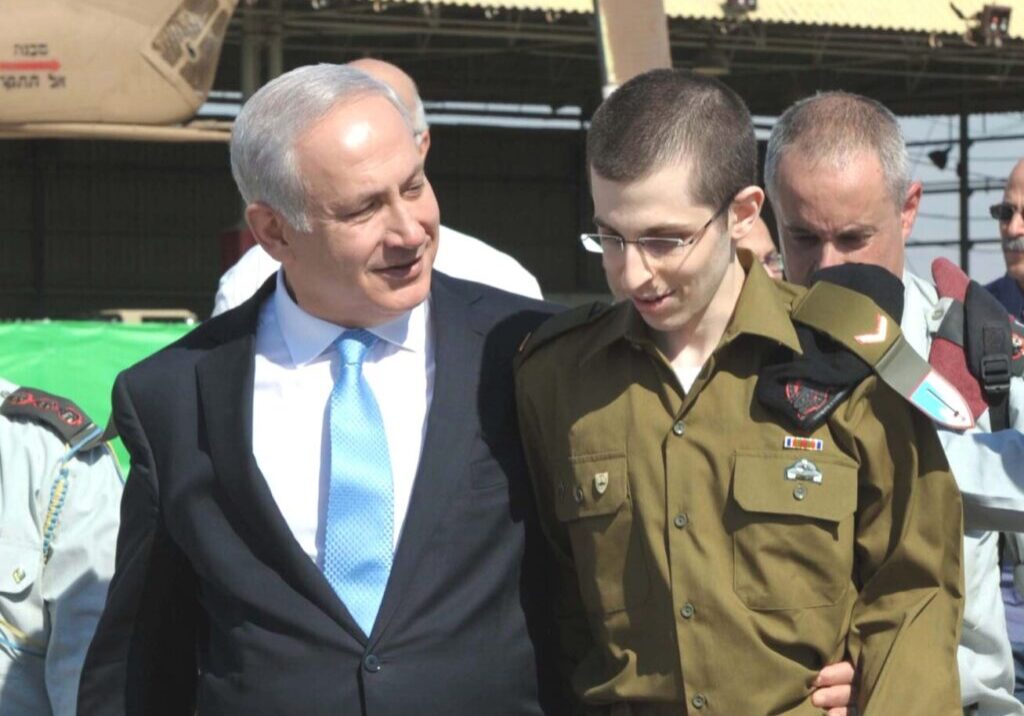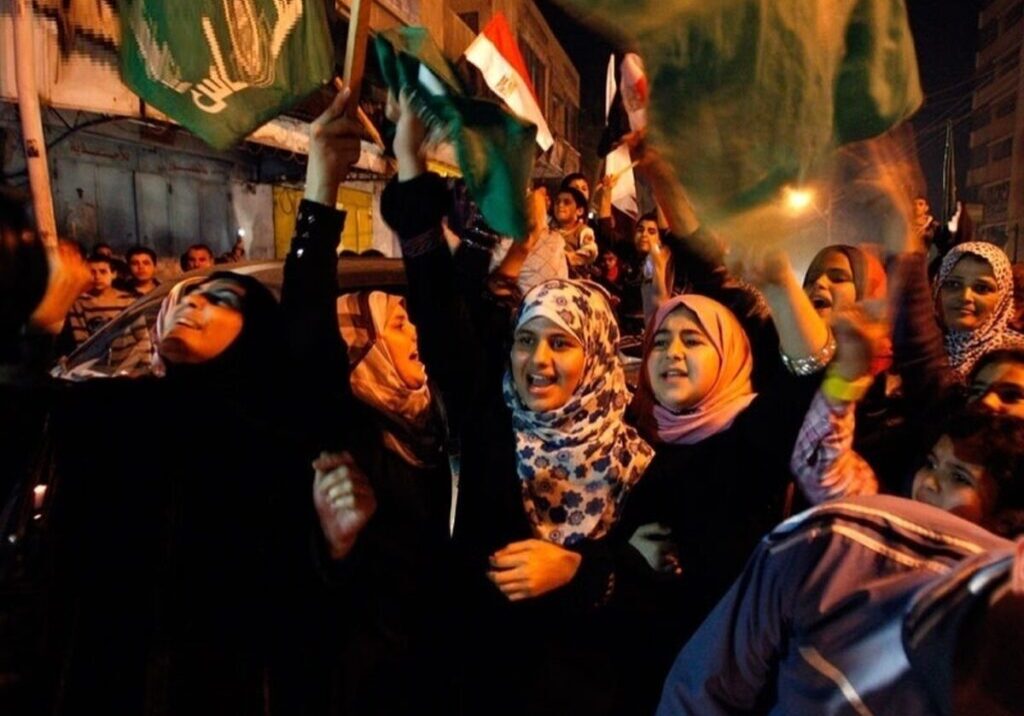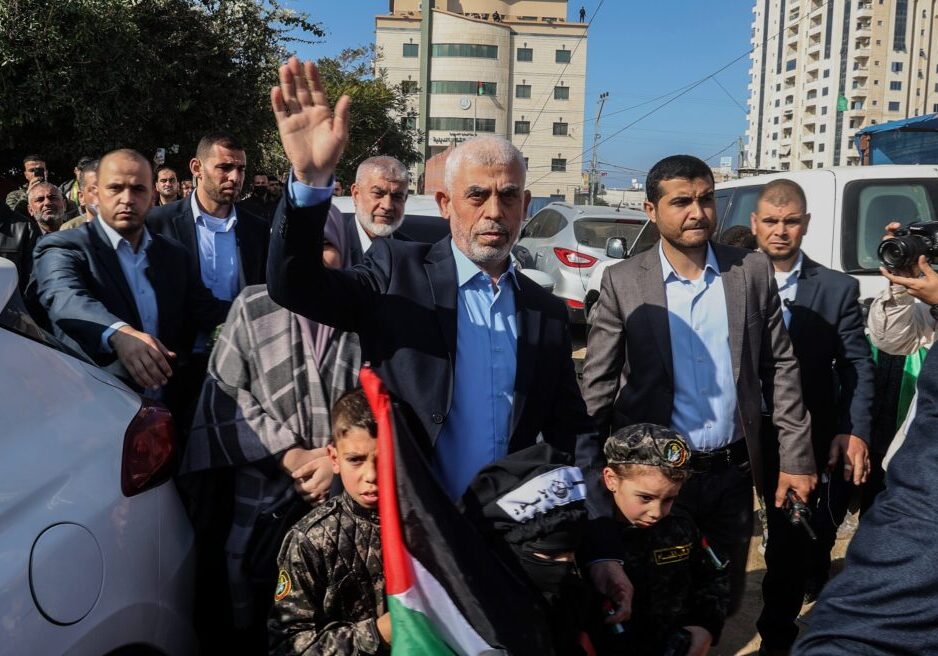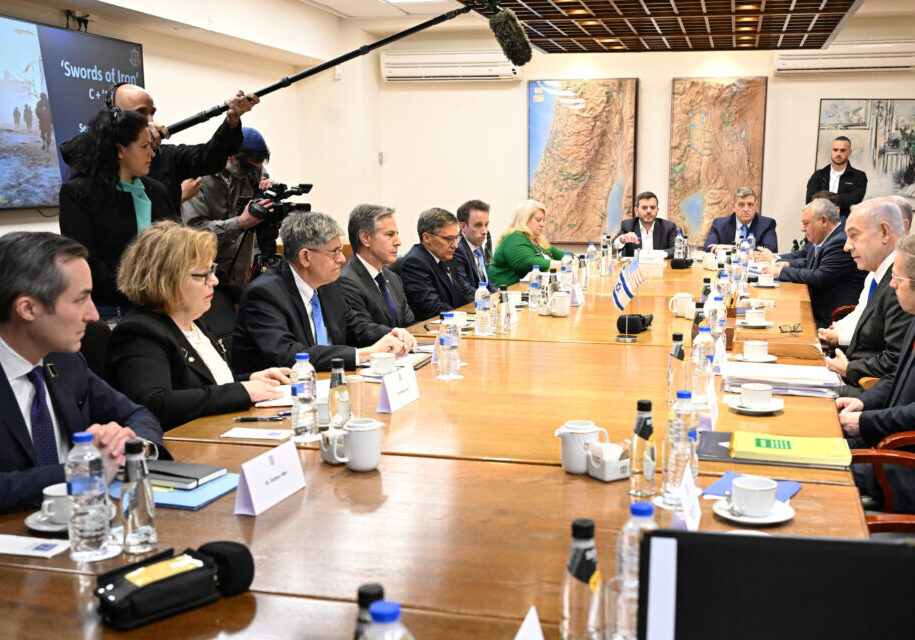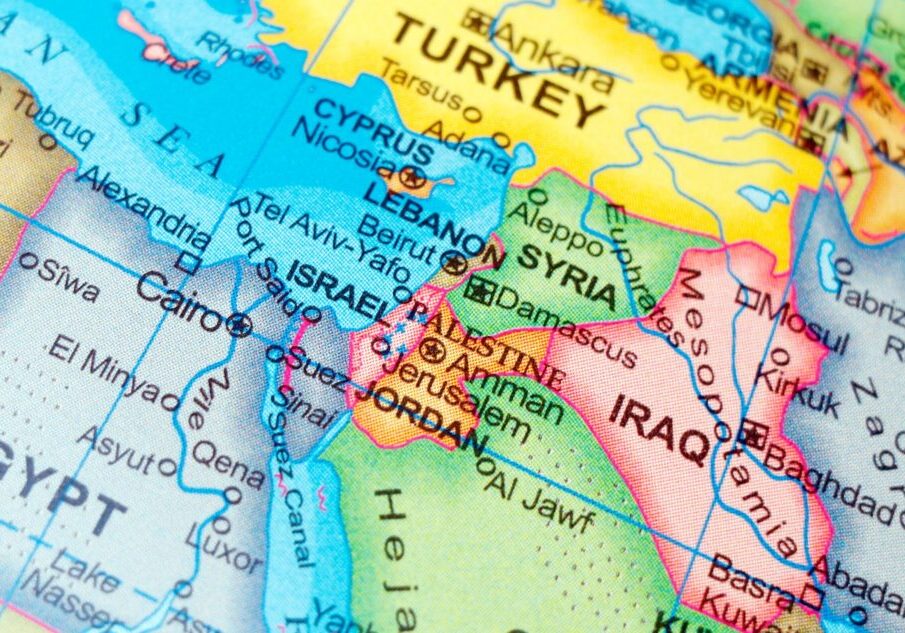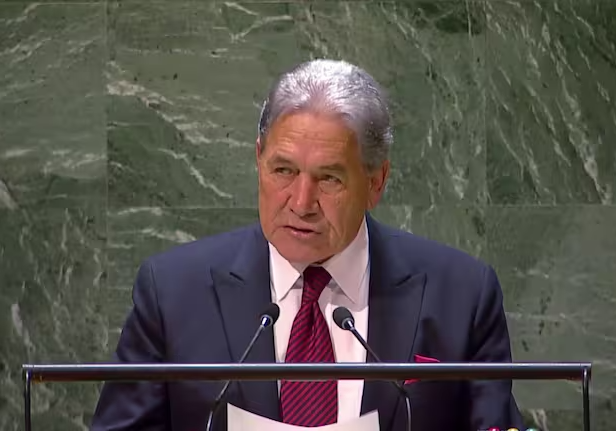Australia/Israel Review
Essay: With Friends Like These…
Mar 20, 2014 | Efraim Karsh
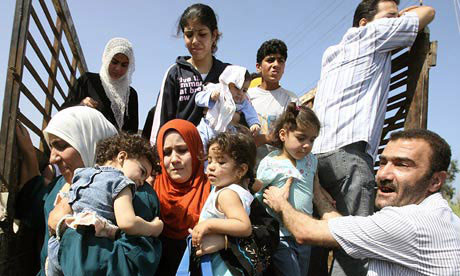
The truth about the Palestinians and the Arab states
Efraim Karsh
For most of the twentieth century, inter-Arab politics were dominated by the doctrine of pan-Arabism, postulating the existence of “a single nation bound by the common ties of language, religion and history… behind the facade of a multiplicity of sovereign states”. No single issue dominated this doctrine more than the “Palestine question” with anti-Zionism forming the main common denominator of pan-Arab solidarity and its most effective rallying cry. But the actual policies of the Arab states have shown far less concern for pan-Arab ideals, let alone for the well-being of the Palestinians, than for their own self-serving interests. Indeed, nothing has done more to expose the hollowness of pan-Arabism than its most celebrated cause.
Denying Palestinian Nationalism
Consider, for instance, Emir Faisal ibn Hussein of Mecca, the celebrated hero of the “Great Arab Revolt” against the Ottoman Empire and the effective leader of the nascent pan-Arab movement. Together with his father and his older brother Abdullah, Faisal placed Palestine on the pan-Arab agenda by (falsely) claiming that they had been promised the country in return for their anti-Ottoman rising. In January 1919, he signed an agreement with Chaim Weizmann, head of the Zionists, supporting the November 1917 Balfour Declaration on the establishment of a Jewish national home in Palestine and the adoption of “all necessary measures … to encourage and stimulate immigration of Jews into Palestine on a large scale.” Yet when the opportunity for self-aggrandisement arose, in March 1920, he had himself crowned king of Syria “within its natural boundaries, including Palestine.” Had either option been realised, Palestine would have disappeared from the international scene at that time.
Nor did Faisal abandon his grand ambitions after his expulsion from Damascus by the French in July 1920. Quite the reverse, using his subsequent position as Iraq’s founding monarch, he toiled ceaselessly to bring about the unification of the Fertile Crescent under his rule. This policy was sustained after his untimely death in September 1933 by successive Iraqi leaders, notably by Nuri Said, Faisal’s comrade-in-arms and a long-time prime minister. In 1936, Said sought to convince Palestine’s Arab and Jewish communities, as well as the British government, to agree to the country’s incorporation into a pan-Arab federation, and six years later, he published a detailed plan for pan-Arab unification that envisaged that “Syria, Lebanon, Palestine, and Transjordan shall be reunited into one state.”
The scheme was vigorously opposed by Abdullah, who strove to transform the emirate of Transjordan (latterly Jordan), which he had ruled since 1921, into a springboard for the creation of a “Greater Syrian” empire comprising Syria, Palestine, and possibly, Iraq and Saudi Arabia. It was the Arab states’ determination to block this ambition and to avail themselves of whatever parts of Palestine they could that underlay the concerted attempt to destroy the State of Israel at birth. This, on the face of it, was a shining demonstration of pan-Arab solidarity; in reality, it was a scramble for Palestinian territory in the classic imperialist tradition. As Arab League Secretary-General Abdel Rahman Azzam admitted to a British reporter, Abdullah “was to swallow up the central hill regions of Palestine with access to the Mediterranean at Gaza. The Egyptians would get the Negev. [The] Galilee would go to Syria, except that the coastal part as far as Acre would be added to Lebanon if its inhabitants opted for it by a referendum.”
Had Israel lost the war, its territory would have been divided among the invading Arab forces. The name Palestine would have vanished into the dustbin of history. By surviving the pan-Arab assault, Israel paradoxically saved the Palestinian national movement from complete oblivion.
Manipulating the Palestinian Cause
Having helped drive the Palestinians to national ruin, the Arab states continued to manipulate the Palestinian national cause to their own ends. Neither Egypt nor Jordan allowed Palestinian self-determination in the parts of Palestine they occupied during the 1948 war. Upon occupying the biblical lands of Judea and Samaria, Abdullah moved to erase all traces of corporate Palestinian Arab identity. On April 4, 1950, the territory was formally annexed to Jordan to be subsequently known as the “West Bank” of the Hashemite kingdom of Jordan. Its residents became Jordanian citizens, and they were increasingly integrated into the kingdom’s economic, political, and social structures. And while Egypt showed no desire to annex the occupied Gaza Strip, this did not imply support of Palestinian nationalism or of any sort of collective political awareness among the Palestinians. The refugees were kept under oppressive military rule, were denied Egyptian citizenship, and were subjected to severe restrictions on travel. “The Palestinians are useful to the Arab states as they are,” President Gamal Abdel Nasser candidly responded to an enquiring Western reporter. “We will always see that they do not become too powerful. Can you imagine yet another nation on the shores of the eastern Mediterranean!”
Nor was Syria more sympathetic to the idea of Palestinian statehood. Hafez Assad (1970-2000), who as late as September 1974 described Palestine as “a basic part of southern Syria,” was a persistent obstacle to Palestinian self-determination. He pledged allegiance to any solution amenable to the Palestine Liberation Organisation (PLO) – appointed by the Arab League in October 1974 as the “sole legitimate representative of the Palestinian people” – so long as it did not deviate from the Syrian line advocating Israel’s destruction.
Yet when in November 1988, the PLO pretended to accept the November 1947 partition resolution (and by implication to recognise Israel’s existence) so as to end its ostracism by the United States, Syria immediately opposed the move. The PLO then took this pretence a step further by signing the September 1993 Declaration of Principles on Interim Self-government Arrangements (DOP) with Israel. This provided for Palestinian self-rule in the entire West Bank and Gaza Strip for a transitional period of up to five years. But the Syrian regime strongly condemned the declaration while the Damascus-based Palestinian terrorist, Ahmad Jibril, threatened PLO chairman Yasser Arafat with death.
A no less instrumental approach was exhibited by Saddam Hussein, another self-styled pan-Arab champion whose professed allegiance to the Palestinian cause was matched by a long history of treating that cause with indifference, if not outright hostility. Saddam stood firmly against Iraqi intervention to aid the Palestinians in Jordan during the “Black September” of 1970 and subsequently sought to exclude Palestinians from coming to work in Iraq’s booming, oil-rich economy. Though a vociferous critic of Egypt’s Anwar Sadat for reaching a separate peace with Israel in 1979, Saddam quickly reconsidered when he needed Egyptian military aid in his war against Iran (1980-88), toiling tirelessly for Cairo’s readmission into the Arab fold. In 1984, at a time of pressure due to the war with Iran, he went so far as to voice public support for peace negotiations with the Jewish state, emphasising that any solution to the conflict would require “the existence of a secure state for the Israelis.”
This support, to be sure, did not prevent Saddam from attempting to link his August 1990 invasion of Kuwait to the Palestine problem. During the months of negotiations with the Kuwaitis before the invasion, Saddam made no mention of Palestine. Once confronted with a firm international response, he immediately opted to “Zionise” the crisis by portraying his predatory move as the first step toward “the liberation of Jerusalem.” But this pretence made no impression whatsoever on most Arab states, which dismissed the spurious link as the ploy it obviously was and fought alongside the West to liberate Kuwait.
Nor did the anti-Iraq coalition collapse when Saddam, in a desperate bid to widen the conflict, fired 39 Scud missiles at Israel – a move cheered by Palestinians and by demonstrators in marginal states such as Yemen but otherwise greeted with conspicuous calm by the proverbially restive “Arab street.”
If anything, it was the Palestinians who paid a heavy price for their entanglement in the conflict as the PLO’s endorsement of the Iraqi occupation led to its ostracism by the Arab world and the postwar expulsion of most of the 400,000 Palestinians who had been living and working in Kuwait.
Unwanted Guests
The political manipulation of the Palestinian cause was mirrored by the dismal treatment of the Palestinian refugees based in Arab states since the 1948 war. Far from being welcomed, the new arrivals were seen as an unpatriotic and cowardly lot who had shamefully abdicated their national duty while expecting others to fight on their behalf. Yet with their desire to offload their Palestinian guests matched by the lingering dream of Israel’s destruction, the Arab states as well as the Palestinian leadership rejected UN General Assembly resolution 194 of December 11, 1948, which conditioned repatriation on the attainment of comprehensive peace and partial refugee resettlement in the host Arab states. The resolution’s subsequent transformation into the cornerstone of an utterly spurious claim to a “right of return” has only served to perpetuate the refugee problem as the Arab states used this “right” as a pretext to prevent Palestinian assimilation into their societies.
Nowhere has this state of affairs been more starkly illustrated than in Lebanon, the most liberal Arab state up until the mid-1970s. Fearful lest the burgeoning and increasingly radicalised Palestinian population (which grew from 100,000 in 1948 to about 500,000 in 2012) undermine the country’s fragile confessional edifice, the authorities barred its incorporation into Lebanon’s social, political, and economic structures. As a result, the vast majority of Palestinians have remained stateless refugees with more than half living in abject poverty in 12 squalid and overcrowded camps administered by the UN Relief and Works Agency for Palestine Refugees in the Near East (UNRWA).
Camp residents or not, Lebanese Palestinians have been excluded from numerous walks of life and spheres of activity due to their alien status and have been singled out for distinct mistreatment including severe restrictions on travel, property ownership, and ability to work. For decades, they were barred by government decree from more than 70 professions, from doorkeepers, to mechanics, to file clerks, to schoolteachers, to personnel managers; and while the Ministry of Labour lifted the ban on 50 professions in June 2005, the actual application of this measure has been haphazard at best. Likewise, only 2% of Palestinians took advantage of the August 2010 legislation aimed at improving their access to the official labour market and the social security system with Lebanese law still barring Palestinians from at least 25 professions requiring syndicated membership (such as law, medicine, and engineering) and discriminating against their work and social conditions (e.g., Palestinians are underpaid in comparison to Lebanese workers for performing the same jobs). Palestinian refugees are still prevented from registering property in accordance with a discriminatory 2001 law.
While Lebanon may offer the starkest example of abuse, nowhere in the Arab world have the Palestinians been treated like “brothers.” In accordance with Arab League resolutions, all Arab states reject naturalisation and/or resettlement as solutions to the refugee problem and refuse as a matter of principle to contribute to UNRWA’s budget or to assume responsibility for any of its functions; and all restrict the freedom of movement of their Palestinian residents as well as their property rights and access to such government services as health, education, and social benefits. When in 2004 Saudi Arabia revised its naturalisation law allowing foreigners who had resided in its territory for ten years to apply for citizenship, the estimated 500,000 Palestinians living and working in the kingdom were conspicuously excluded.
Even in Jordan, where most Palestinians have been naturalised and incorporated into the country’s fabric, they remain largely marginalised and discriminated against. Between 1949 and 1967, when Jordan was in control of the West Bank, some 250,000-500,000 Palestinians moved across to the East Bank or migrated abroad in search of a better life. But even East Bank Palestinians have been subjected to systematic discrimination. They pay much heavier taxes than their Bedouin compatriots; they receive close to zero state benefits; they are almost completely shut out of government jobs, and they have very little, if any, political representation: Not one of Jordan’s 12 governorships is headed by a Palestinian, and the number of Palestinian parliamentarians is disproportionately low.
The situation is further exacerbated by the fact that more than two million Palestinians, most of whom have full Jordanian citizenship, are registered as UNRWA refugees with some 370,000 living in ten recognised camps throughout the country. This has in turn resulted in the perception of the kingdom’s entire Palestinian population as refugees who would eventually depart to implement their “right of return.”
This outlook can be traced to the founding of the Palestine Liberation Organisation (PLO) in 1964, which quickly challenged Jordan as the focus of Palestinian national identity. The situation came to a head in the autumn of 1970 with the organisation’s attempt to overthrow the Hashemite dynasty. This forced King Hussein to drive the PLO out of the country, gaining traction in July 1988 when hundreds of thousands of West Bankers lost their Jordanian citizenship as a result of the king’s severance of “administrative and legal ties” with the territory. After the signing of the DOP and the July 1994 Jordanian-Israeli peace treaty, the process shifted to the East Bank where thousands of Palestinians were stripped of their Jordanian citizenship.
Brotherly Massacres
Not only have the host Arab states marginalised and abused their Palestinian guests, but they have not shrunk from massacring them on a grand scale whenever this suited their needs. When in 1970 his throne was endangered by the Palestinian guerrilla organisations, the affable and thoroughly Westernised King Hussein slaughtered thousands of Palestinians during a single month, now known as “Black September.” Fearing certain death, scores of Palestinian fighters fled their Jordanian “brothers” to surrender themselves to the Israeli Defence Forces (IDF). Civilian casualties were exorbitant with estimates ranging from three thousand to fifteen thousand dead – higher than the Palestinian death toll in the 1948 war.
In the summer of 1976, Lebanese Christian militias, backed by the Syrian army, massacred some 3,500 Palestinians, mostly civilians, in the Beirut refugee camp of Tel Zaatar. Six years later, these very militias slaughtered hundreds of Palestinians in the refugee camps of Sabra and Shatila, this time under the IDF’s watchful eye. None of the Arab states came to the Palestinians’ rescue.
When in 1983 the PLO tried to reestablish its military presence in Lebanon, having been driven out the previous year by Israel, it was unceremoniously expelled by the Syrian government, which went on to instigate an internecine war among the Palestinian factions in Lebanon that raged for years and cost an untold number of lives. Salah Khalaf (aka Abu Iyad), the number two man in the PLO, accused Damascus of committing worse crimes against the Palestinian people than “those of the Israeli enemy.”
In the summer of 2007, the Lebanese army killed hundreds of Palestinians, including many civilians, in the north Lebanese refugee camp of Nahr al-Bared, inflicting widespread environmental damage and driving some 30,000 persons to seek refuge in a nearby camp.
Thousands of Palestinians have been killed in the ongoing Syrian civil war, and tens of thousands have fled the country with refugee camps subjected to military attacks and prolonged sieges that reduced their inhabitants to destitution and starvation. The large Yarmouk camp south of Damascus, once home to some 250,000 Palestinians, including 150,000 officially registered refugees, is now “nothing but ruins, and houses only around 18,000 residents who couldn’t escape to Lebanon, Jordan, or elsewhere.”
Brotherly Naqba
Much has been made of the Palestinian exodus of 1948, but during their decades of dispersal, the Palestinians have been subjected to similarly traumatic ordeals at the hands of their Arab brothers. As early as the 1950s, the Arab gulf states expelled striking Palestinian workers while the Black September events led to the expulsion of some 20,000 Palestinians from Jordan and the demolition of their camps. And this tragedy pales in comparison with the eviction of most of Kuwait’s 400,000 Palestinians after the 1991 Kuwait war. “What Kuwait did to the Palestinian people is worse than what has been done by Israel to Palestinians in the occupied territories,” Arafat lamented, as if it were not the PLO’s endorsement of Iraq’s brutal occupation (August 1990-February 1991) that triggered this deadly retribution.
It mattered not that this community had nothing to do with the PLO’s reckless move. Within months of the country’s liberation, only 50,000-80,000 Palestinians remained in the emirate, and by the end of the year, the number had dwindled to some 30,000. Most of these were holders of Egyptian travel documents, originally from Gaza; they were unable to obtain visas to anywhere in the world, including Egypt, the governing power in their homeland at the time when they left for the gulf. By contrast, as noted in The Palestine Yearbook of International Law, “Israel generally placed no obstacles on the post-war return to the territories of Palestinian families from the West Bank,” repatriating some 30,000 West Bankers and 7,000 Gazans with valid Israeli identity cards.
No sooner had the dust settled on the Kuwait exodus than the Palestinians experienced yet another expulsion, this time from Libya. In a speech on September 1, 1995, as Israel was about to surrender control of the Palestinian populated areas in the West Bank to Arafat’s Palestinian Authority, Mu’ammar al-Gaddafi announced his intention to expel all Palestinians living and working in Libya, urging the Arab states to follow his lead so as to expose the hollowness of the Palestinian-Israeli peace process. He argued,
Since the Palestinian leaders claim they have now got a homeland and a passport, let the 30,000 Palestinians in Libya go back to their homeland, and let’s see if the Israelis would permit them to return. That’s how the world will find out that the peace it’s been advocating is no more than treachery and a conspiracy.
While no Arab state took up Gaddafi’s advice, none opened their doors to the deportees. Lebanon denied entry to several thousand arrivals without Lebanese travel documents and banned maritime transport from Libya to preempt the possible flow of deportees.
Last but not least, the toppling of Saddam Hussein in April 2003 unleashed a tidal wave of violence and terror against Iraq’s 34,000-strong Palestinian community, driving some 21,000 people to flee the country in fear for their lives. None of the neighbouring Arab states (with rare, temporary exceptions) opened their doors to fleeing Iraqi Palestinians. “It’s hard to understand why Syria has provided refuge to nearly a million Iraqi refugees but is shutting the door on hundreds of Palestinians also fleeing Iraq,” commented a leading human rights watchdog.
No Love Lost
In fairness to the Arab states, their animosity and distrust were more than reciprocated by the Palestinians. As early as the 1948 war, the pan-Arab volunteer force that entered Palestine to fight the Jews found itself at loggerheads with the community it was supposed to defend. Denunciations and violent clashes were common with the local population often refusing to provide the Arab Liberation Army, as this force was ambitiously named, with the basic necessities for daily upkeep and military operations; for their part, Arab army personnel abused their Palestinian hosts of whom they were openly contemptuous.
This mutual animosity was greatly exacerbated in subsequent decades by the recklessness of the Palestinian leadership, headed from the mid-1960s to November 2004 by Arafat, which turned on Arab host societies whenever given the opportunity. As noted above, it was the PLO’s subversive activities against the Jordanian regime that set in train the chain of events culminating in the Black September massacres. Likewise, the PLO’s abuse of its growing power base in Lebanon, where it established itself after its expulsion from Jordan, and its meddling in that country’s internal politics, helped trigger the Lebanese civil war that raged for nearly two decades and cost hundreds of thousands of lives.
This political meddling was accompanied by wanton violence wreaked by the PLO on its host society. In a repeat of their Jordanian lawlessness, Palestinian guerrillas turned the vibrant and thriving Lebanese state, whose capital of Beirut was acclaimed as the “Paris of the Middle East,” into a hotbed of violence and anarchy. Several districts of Beirut and the refugee camps came under exclusive Palestinian control, so much so that they became generally known as the Fakhani Republic, after the Beirut district in which Arafat had set up his headquarters. Substantial parts of southern Lebanon or “Fatahland” also were under Palestinian control. In flagrant violation of Lebanese sovereignty, the PLO set up roadblocks, took over buildings and drove out local residents, operated extortion rackets, protected criminals fleeing from Lebanese justice, and committed countless atrocities against Lebanese civilians, notably the January 1976 massacre of hundreds of residents of the Christian town of Damour, south of Beirut, and the expulsion of the remaining population.
Self-serving interventionism under the pretence of pan-Arab solidarity has transformed the bilateral Palestinian-Israeli dispute into a multilateral Arab-Israeli conflict, thereby stirring unrealistic hopes and expectations in Palestinian political circles and, at key junctures, inciting widespread and horrifically destructive violence. The consequence has been to increase the intensity of the conflict and make its resolution far more complex and tortuous, leaving the Palestinians stateless for over six-and-a-half decades.
The sooner the Palestinians reject this spurious link and recognise that their cause is theirs alone, the sooner are they likely to make their own peace with the existence of the Jewish state – as stipulated by the 1947 partition resolution – and win their own state at long last despite their Arab “brothers.”
Dr. Efraim Karsh, editor of the Middle East Quarterly, is professor of Middle East and Mediterranean studies at King’s College London and professor of political studies at Bar-Ilan University where he is also a senior research associate at the BESA Centre for Strategic Studies. This article is part of a wider study prepared under the auspices of the BESA Centre. © Middle East Quarterly (www.meforum.org/meq) reprinted by permission, all rights reserved.
Tags: Middle East

